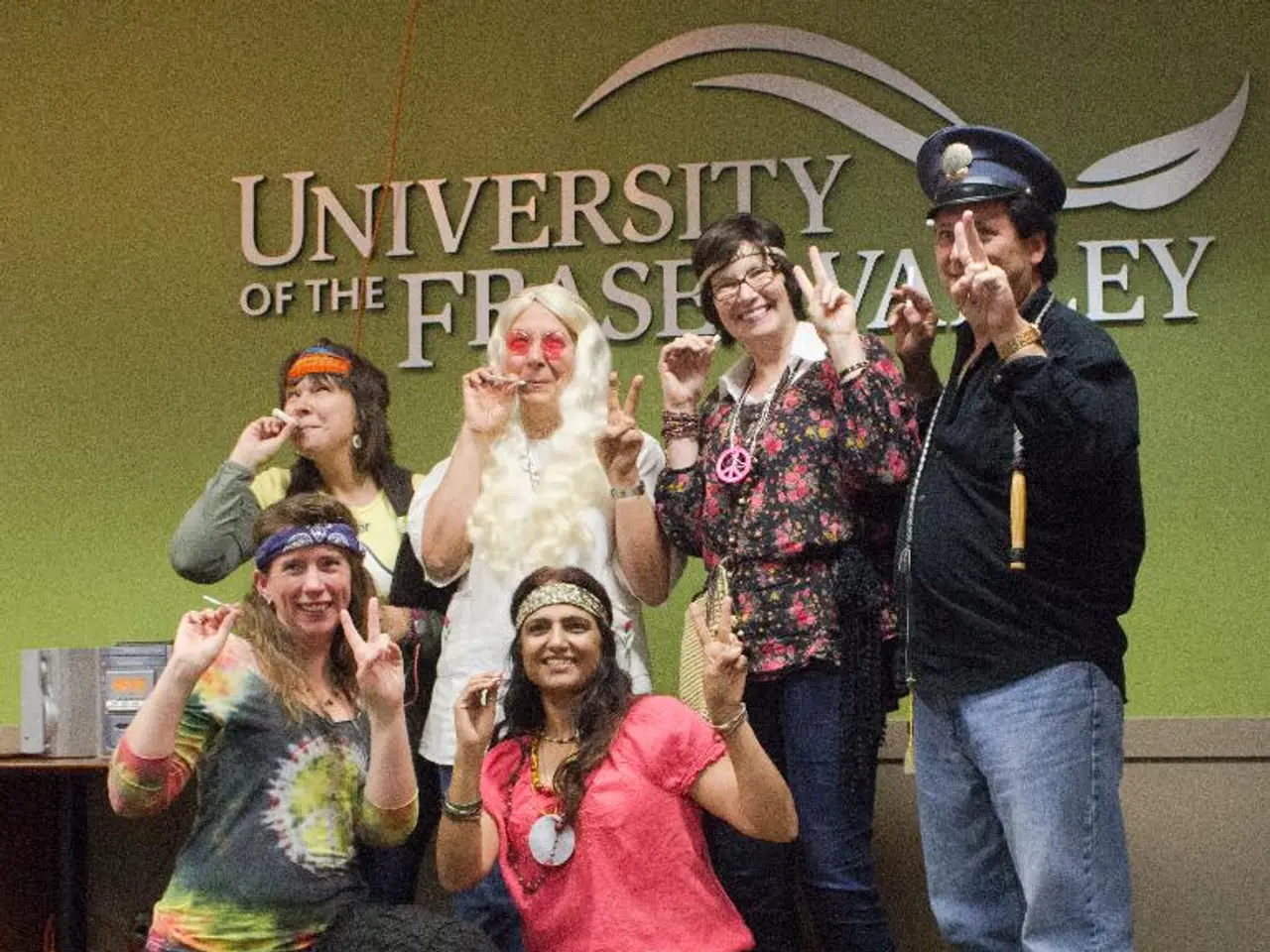To Feel More Lighthearted, Incorporate the Regular Habits of Content Individuals
=====================================================
In the pursuit of happiness, small acts and practices can make a significant difference, according to various studies and research. Here's a look at some of the key practices that collectively help people feel lighter and increase happiness levels.
Planning Trips and Spending on Experiences
Planning trips and spending on experiences enrich life with anticipation and memorable moments, which research shows promote longer-lasting happiness than material goods because experiences build identity and social bonds [1]. Experiences, such as concerts or sports events, make people happier than material items, according to a 2009 study [2]. Experiences, such as a family picnic, energize people and make them feel alive, both in the moment and upon reflection.
Expressing Gratitude
Expressing gratitude has strong, research-backed benefits. It improves mood, reduces anxiety and depression, and rewires the brain to focus more on positive aspects of life [3][4][5]. Gratitude activates brain regions linked to happiness (like the prefrontal cortex), boosts dopamine and serotonin levels, lowers stress hormones, enhances immune function, improves sleep, and fosters emotional stability and resilience [1][2][3][4][5]. Expressing gratitude, such as through a gratitude journal, can boost one's mood, according to Ariel Gore [6].
Talking Out Stress
Talking out stress helps process emotions and alleviate mental burdens, preventing negative thought cycles from escalating and promoting a lighter emotional state.
Surrounding Oneself with Positive People
Surrounding oneself with positive people provides social support, encouragement, and companionship, which increase feelings of belonging and reduce loneliness, further boosting happiness and reducing stress.
Giving Generously
Giving gifts generously encourages altruism, which triggers feelings of reward and satisfaction in the brain, strengthening social bonds and personal fulfillment.
Embracing One's Ethnic Identity
Embracing one's ethnic identity fosters a secure sense of self and cultural belonging, which enhances self-esteem and emotional well-being, contributing to a lighter psychological state. People, especially children, who embrace their ethnic identity are happier and more resistant to stress than those who do not [7]. Cultural pride is an important part of self-esteem, which makes people happy.
Together, these practices create a positive feedback loop of better mental health, reduced stress, increased dopamine and serotonin production, and social connectedness, all of which cumulatively make people feel lighter and more joyful. The scientific literature especially emphasizes gratitude and social connection as potent routes to boosting happiness and emotional health.
Interestingly, happiness can spread like a virus, affecting the moods of people in one's network for up to a year. The chances that a person in her network would also become happy were raised by 9 percent [8]. Therapy can lower psychological distress and daily stress, which is integral to personal happiness, according to British researchers [9].
References:
[1] University of North Carolina, 2013 [2] University of North Carolina, 2012 [3] University of California, Berkeley, 2003 [4] University of California, Davis, 2003 [5] University of Pennsylvania, 2004 [6] Ariel Gore, Bluebird: Women and the New Psychology of Happiness, 2008 [7] University of California, Los Angeles, 2007 [8] University of California, San Diego, 2010 [9] University of Oxford, 2010
Read also:
- Strategies for Mitigating Negative Feelings in Customer Interaction with Your Goods or Services
- Is it necessary for concerts to be so excessively loud that ear protection is essential?
- Director Celine Song defends her film 'Materialists' against accusations of elitism and classism.
- Pregnancy, according to the Bible, is defined as a state in which a woman carries a developing child in her womb.







